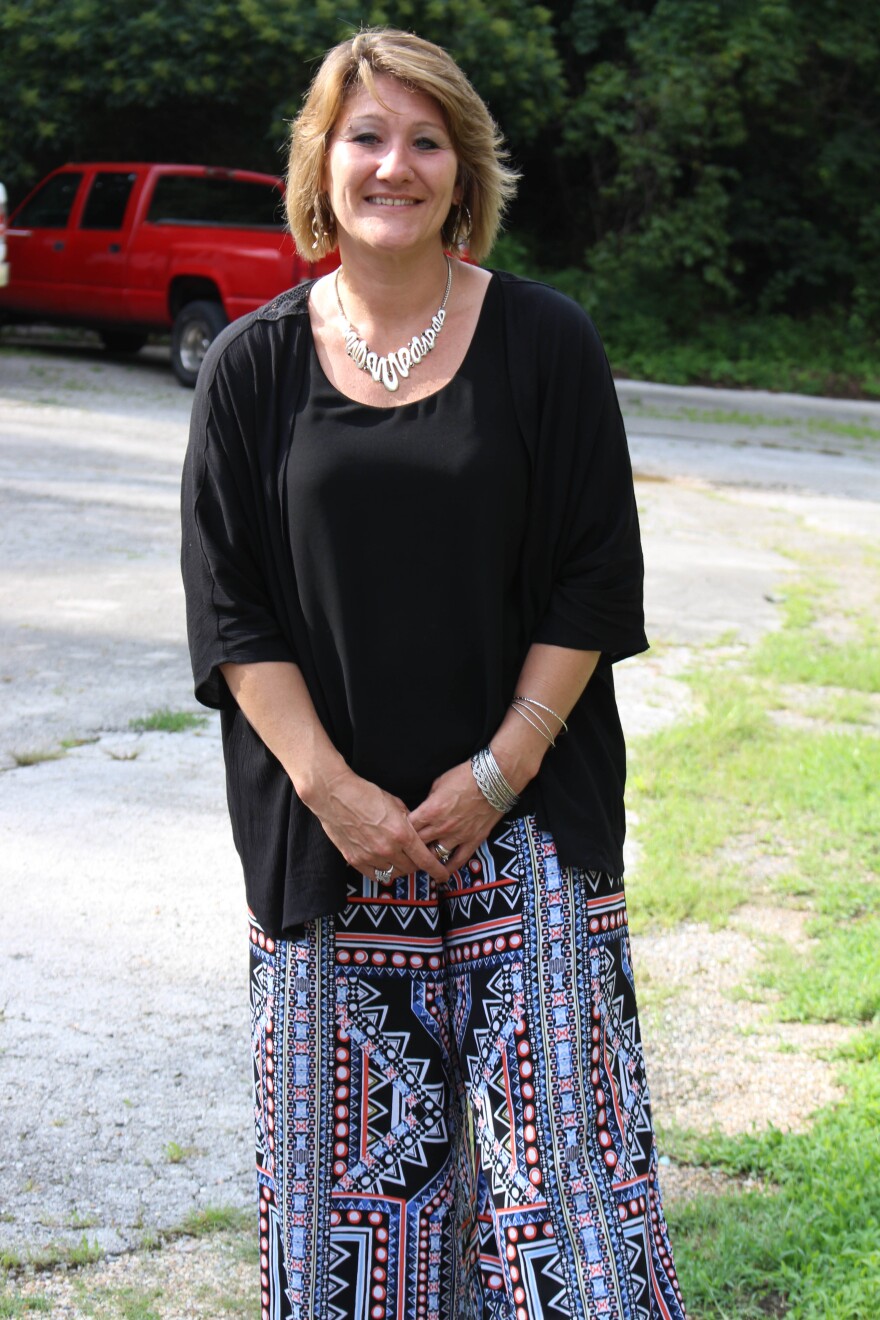Deana Kilpatrick smoked crack for the first time when she was 13 years old. “From there,” she says, “I really just spiraled down hill.”
For the next 30 years, drugs and alcohol were part of her life. Then last November, at the age of 43, she moved to Branson, Missouri looking for a new start. It was going pretty well until loneliness drove her to relapse a few months ago. She got a fourth DWI and faced up to four years in jail.
But, this time, instead of going to prison, she entered Stone County, Missouri's treatment court, which places nonviolent offenders into recovery. For 18 months, she’s required to attend a 12-step program, meet with a counselor and a parole officer, and complete community service.
She’s also getting something she didn’t have when she was trying to go it alone: peer support.
Participants in the treatment court can enroll in Peers Encouraging and Empowering Peers (PEEPs) in Recovery, a peer support center in Reeds Spring, about 20 miles from Branson.
The center connects people like Kirkpatrick with a peer who is farther along in recovery and who can help her navigate her new life without alcohol.
PEEPs’ director Patricia Sams, herself in recovery from alcohol addiction, started the program earlier this year with funding from a federal grant.
She says in rural southwest Missouri recovery from addiction can be hard to maintain because “support systems are so limited.”

The three counties PEEPS serves (Stone, Lawrence and Barry) have a combined population of around 100,000 and some of the highest overdose rates in the state.
The idea of using peers to help people in recovery is gaining wider acceptance around the country.
“The bottom line is that peers can help improve treatment outcomes,” says Tom Hill, senior adviser on addiction recovery with the federal Substance Abuse and Mental Health Services Administration.
His agency promotes peer support as a tool for recovery, and provides funding support for peer programs with grants.
He says peer support is the next step in treating addiction like a disease. “Addiction is a chronic condition like hypertension or diabetes or any other thing that needs management,” he says. And peer support specialists can be a cost-effective approach to working with people over a long period of time to help keep their lives stabilized and prevent relapse.
“Peers can help a person really develop what a life in recovery entails in terms of a full and meaningful and productive life,” he says.
People entering recovery may be lacking certain life skills they need to build themselves back up: resume building, looking for work, scheduling and keeping appointments, exercise or nutrition.
And then there’s debt. At the start of recovery, often, “there are fees that need to be paid, there’s a lot of wreckage in the past,” Sams says.
Peer support specialists—who are trained and credentialed by the state—can assist with all of those skills.
This support is meaningful coming from someone who has tackled similar challenges—peers are proof things can get better.

But few states are funding peer services for addiction recovery, at least not through Medicaid. Back in 2007, the Centers for Medicare & Medicaid services encouraged states to start funding peer support as a part of both mental health services and substance abuse treatment.
While more than 30 states have started paying for mental health peers, Hill says only a handful pay for peers to help with addiction. Missouri is not one of them.
Hill says that historically Medicaid programs have reimbursed for mental health treatment but have covered substance use disorders much less consistently.
There’s limited research to prove peer support is effective for addiction, something Hill says the agency is working on providing.
But he says peer support specialists are here to stay—there’s evidence on the ground that they help and the field has reached a point of maturity, in terms of training and support.
“They're working in our opioid treatment programs; they're out there working in jails and prisons; they're working in HIV clinics,” he says. “They’re working in any place where people go for health and human services.”
As public awareness of the national opioid epidemic grows, Hill expects more states to start paying for substance abuse peers.
But for now, centers like PEEPs in Missouri have to find other funding.
Deana Kilpatrick is one of more than 220 people who have come through PEEPs since it opened in January. On her first visit, she got a needs assessment: Did she need shelter? (“Yes.”) Food? (“Yes.”) Transportation? (“Absolutely, yes.”)
The woman doing the assessing was Sally Moore, who, like all eight of the peer support specialists at PEEPs, is in recovery herself—in her case from drug addiction.
“I don’t think any alcoholic or [drug] addict should die in their addiction,” Moore says. “And there was somebody there to help me, so...”
For Kilpatrick, she says finding PEEPs was like “divine intervention,” giving her a supportive community and another chance. So far, she’s been sober since mid-May and moved in with a family member closer to Reeds Spring—and closer to PEEPs—to pursue her recovery.
This story was produced by Side Effects Public Media.






